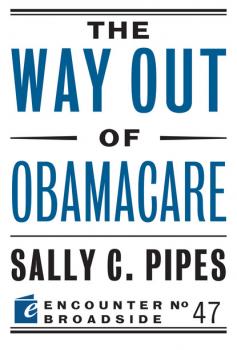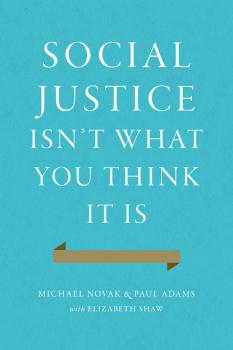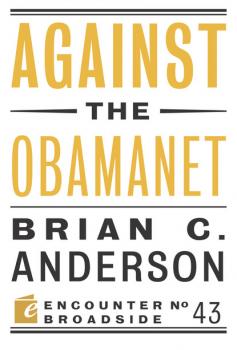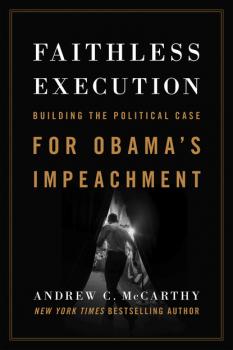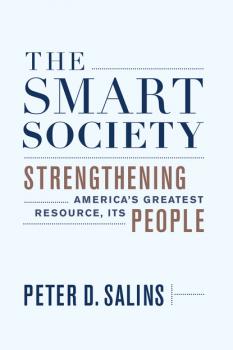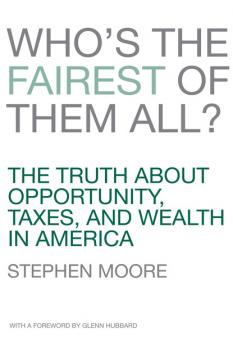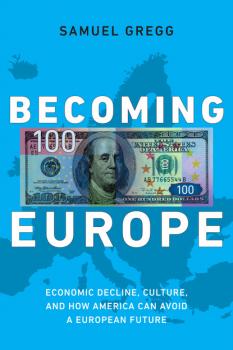Экономика
Различные книги в жанре ЭкономикаThe Way Out of Obamacare
President Barack Obama has declared that his signature health reform law – the Patient Protection and Affordable Care Act – is “here to stay.” But his days in the White House are numbered, and the law has failed: insurance premiums and deductibles have skyrocketed, patients are losing access to doctors, and economic growth has been crushed.In this Broadside, Sally C. Pipes provides an actionable blueprint for health care reform this campaign season, which the next president can implement on Day One. This book provides a replacement plan for Obamacare – one that will provide affordable, accessible, quality health care for all Americans.
Social Justice Isn't What You Think It Is
What is social justice? For Friedrich Hayek, it was a mirage—a meaningless, ideological, incoherent, vacuous cliché. He believed the term should be avoided, abandoned, and allowed to die a natural death. For its proponents, social justice is a catchall term that can be used to justify any progressive-sounding government program. It endures because it venerates its champions and brands its opponents as supporters of social injustice, and thus as enemies of humankind. As an ideological marker, social justice always works best when it is not too sharply defined.In Social Justice Isn’t What You Think It Is, Michael Novak and Paul Adams seek to clarify the true meaning of social justice and to rescue it from its ideological captors. In examining figures ranging from Antonio Rosmini, Abraham Lincoln, and Hayek, to Popes Leo XIII, John Paul II, and Francis, the authors reveal that social justice is not a synonym for “progressive” government as we have come to believe. Rather, it is a virtue rooted in Catholic social teaching and developed as an alternative to the unchecked power of the state. Almost all social workers see themselves as progressives, not conservatives. Yet many of their “best practices” aim to empower families and local communities. They stress not individual or state, but the vast social space between them. Left and right surprisingly meet.In this surprising reintroduction of its original intention, social justice represents an immensely powerful virtue for nurturing personal responsibility and building the human communities that can counter the widespread surrender to an ever-growing state.
Against the Obamanet
The Internet is a platform of ceaseless innovation that has transformed our lives in a remarkably short time. And the United States has led that revolution: of the 15 largest websites in the world, 10 are American. But all that is now under threat. In February 2015, the Federal Communications Commission imposed extensive regulatory controls on this vibrant digital universe in an effort to mandate “network neutrality.”In this Broadside, Brian C. Anderson explains how the FCC’s power grab for “neutrality” could be devastating for the most dynamic sector of the U.S. economy. Network neutrality is at odds with everything that made today’s Internet the market cornucopia that it is, and we must protect it from the encroach¬ments of Washington in order to foster its further growth.
Faithless Execution
We still imagine ourselves a nation of laws, not of men. This is not merely an article of faith but a bedrock principle of the United States Constitution. Our founding compact provides a remedy against rulers supplanting the rule of law, and Andrew C. McCarthy makes a compelling case for using it.The authors of the Constitution saw practical reasons to place awesome powers in a single chief executive, who could act quickly and decisively in times of peril. Yet they well understood that unchecked power in one person’s hands posed a serious threat to liberty, the defining American imperative. Much of the debate at the Philadelphia convention therefore centered on how to stop a rogue executive who became a law unto himself.The Framers vested Congress with two checks on presidential excess: the power of the purse and the power of impeachment. They are potent remedies, and there are no others.It is a straightforward matter to establish that President Obama has committed “high crimes and misdemeanors,” a term signifying maladministration and abuses of power by holders of high public trust. But making the legal case is insufficient for successful impeachment, leading to removal from office. Impeachment is a political matter and hinges on public opinion.In Faithless Execution, McCarthy weighs the political dynamics as he builds a case, assembling a litany of abuses that add up to one overarching offense: the president’s willful violation of his solemn oath to execute the laws faithfully. The “fundamental transformation” he promised involves concentrating power into his own hands by flouting law—statutes, judicial rulings, the Constitution itself—and essentially daring the other branches of government to stop him. McCarthy contends that our elected representative are duty-bound to take up the dare.
What Doomed Detroit
Many cities have struggled with the decline of key industries, from Philadelphia’s shipyards to New York’s textile industry, but Detroit—which is now in bankruptcy—is both a victim of the decline of the Michigan automobile industry and a cause of it. A city with a history of civil disorder—it is the only American city occupied on three separate occasions by federal troops—its poisonous blend of race-based politics and union domination has left it impoverished and diminished. Once the fourth-largest city in the country, it is today smaller than Fort Worth. Once the nation’s most prosperous city, it is today the poorest. Even in its reduced state, it is the largest U.S. city ever to file for bankruptcy—and yet its city payroll maintains twice as many government employees per resident as does San Jose. More terrifying is the fact that the imbalance between public-sector consumption and private-sector production that helped make Detroit what it is today is by no means limited to the Motor City—in fact, there are four large U.S. cities that are in arguably worse shape. Detroit is not just a case study, but a portent.
The Truth About the IRS Scandals
The IRS scandal is far more complicated than it appears—and more pernicious. Its roots go back to its founding but modern technology has accelerated the harm that a few malicious IRS administrators can do to their political enemies.Lois Lerner, the woman at the center of the congressional probe into the targeting of conservative groups, called the Tea Party “very dangerous” and hoped it could be used to roll back a pro-free speech court case, Citizens United v. Federal Election Commission (2010). Lerner conspired with her old colleagues at the FEC to leak confidential tax information. She even acted to retroactively award tax exempt status to politically connected charities while targeting for destruction those committed to truth.Leaking sensitive information about individuals and organizations is par for the course for committed ideologues in the Obama Administration who rely on an apparatus of far left think tanks and their allies in the press to spin narratives that keep the Washington elite in control. The far left’s friends in Congress and the IRS, meanwhile, are doing everything they can to make sure the truth is never brought to light by spinning about what really happened.This Broadside will expose the tax collector conspiracy that kneecapped the Tea Party, one of the greatest citizen uprisings in American history, and educates citizens about what has been done so that they might prevent it from ever happening again. Knowledge, particularly of the arcane regulations of the tax code, is power; a lawless tax collector class can only be curtailed by an active citizenry.The Truth About the IRS Scandals is necessary because only the truth will set Americans free.
The Smart Society
The Smart Society offers a detailed blueprint for how the United States can recast its human capital policies to make all Americans—not just a privileged elite—smarter and more successful than ever before, at the same time stemming the size and cost of the nation’s “safety net.” The spectacular, centuries-long success of the United States is based on its having determined, early on, to be a smart country, single-mindedly developing institutions and practices that enabled its native born citizens to maximize their economic and social potential, and welcoming opportunity-seeking foreigners to join them. Over the last four decades, however, the vaunted United States human capital machine has been breaking down, dimming the economic and social prospects of millions of Americans.If The Smart Society blueprint is followed, these trends can be reversed and the nation and its people can quickly regain their preeminence in the hyper-competitive and globalized world of the 21st century. This is a most topical issue today because the country's current heated political disagreements are not just about the proper size of government, but about how the United States can reverse its apparent decline and restore its historic economic and social vigor—in other words, regain its place as the world’s “smartest” nation.
Who's the Fairest of Them All?
President Obama has declared that the standard by which all policies and policy outcomes are judged is fairness. He declared in 2011 that «we've sought to ensure that every citizen can count on some basic measure of security. We do this because we recognize that no matter how responsibly we live our lives, any one of us, at any moment, might face hard times, might face bad luck, might face a crippling illness or a layoff.» And that, he says, is why we have a social safety net. He says that returning to a standard of fairness where anyone can get ahead through hard work is the «issue of our time.» And perhaps it is.This book explores what it means for our economic system and our economic results to be «fair.» Does it mean that everyone has a fair shot? Does it mean that everyone gets the same amount? Does it mean the government can assert the authority to forcibly take from the successful and give to the poor? Is government supposed to be Robin Hood determining who gets what? Or should the market decide that? The surprising answer: nations with free market systems that allow people to get ahead based on their own merit and achievement are the fairest of them all.
Becoming Europe
“We’re becoming like Europe.” This expression captures many Americans’ sense that something has changed in American economic life since the Great Recession’s onset in 2008: that an economy once characterized by commitments to economic liberty, rule of law, limited government, and personal responsibility has drifted in a distinctly “European” direction.Americans see, across the Atlantic, European economies faltering under enormous debt; overburdened welfare states; governments controlling close to fifty percent of the economy; high taxation; heavily regulated labor markets; aging populations; and large numbers of public-sector workers. They also see a European political class seemingly unable—and, in some cases, unwilling—to implement economic reform, and seemingly more concerned with preserving its own privileges. Looking at their own society, Americans are increasingly asking themselves: “Is this our future?”In Becoming Europe, Samuel Gregg examines economic culture—the values and institutions that inform our economic priorities—to explain how European economic life has drifted in the direction of what Alexis de Tocqueville called “soft despotism,” and the ways in which similar trends are manifesting themselves in the United States. America, Gregg argues, is not yet Europe; the good news is that economic decline need not be its future. The path to recovery lies in the distinctiveness of American economic culture. Yet there are ominous signs that some of the cultural foundations of America’s historically unparalleled economic success are being corroded in ways that are not easily reversible—and the European experience should serve as the proverbial canary in the coal mine.
A Time for Governing
America finds itself in a moment of profound and complex governing challenges. A crushing recession followed by a feeble recovery have shaken the foundations of our financial and economic system. We are struggling with the exploding costs of health-care and entitlement spending, and fiscal disaster looms as our society ages. American families are anxious about wage stagnation, barriers to social mobility, and the nation’s competitiveness in an era of globalization. Meanwhile, our large governing institutions — most of them designed several decades ago — are showing signs of strain and decay, calling out for serious reform. National Affairs, a quarterly journal of essays on domestic policy and political economy, was launched in 2009 to help Americans think more clearly about these problems and to develop promising solutions. This book is a collection of some of the most timely and concrete policy proposals published in the journal’s pages, offering ideas for reforming our welfare state, our tax system, financial regulation, monetary policy, education, state finances, and more. Each essay was written by a prominent expert in the field—the authors are all notable right-leaning academics, policy experts, former government officials, or think tank scholars with national reputations. The book thus comprises a ready-made domestic policy agenda for conservative policymakers (including a Republican president, should one be elected in 2012), based on the latest and best thinking from the world of conservative policy intellectuals. It will be the only resource of its kind in this election year—a one-stop-shop for conservative policy ideas.
